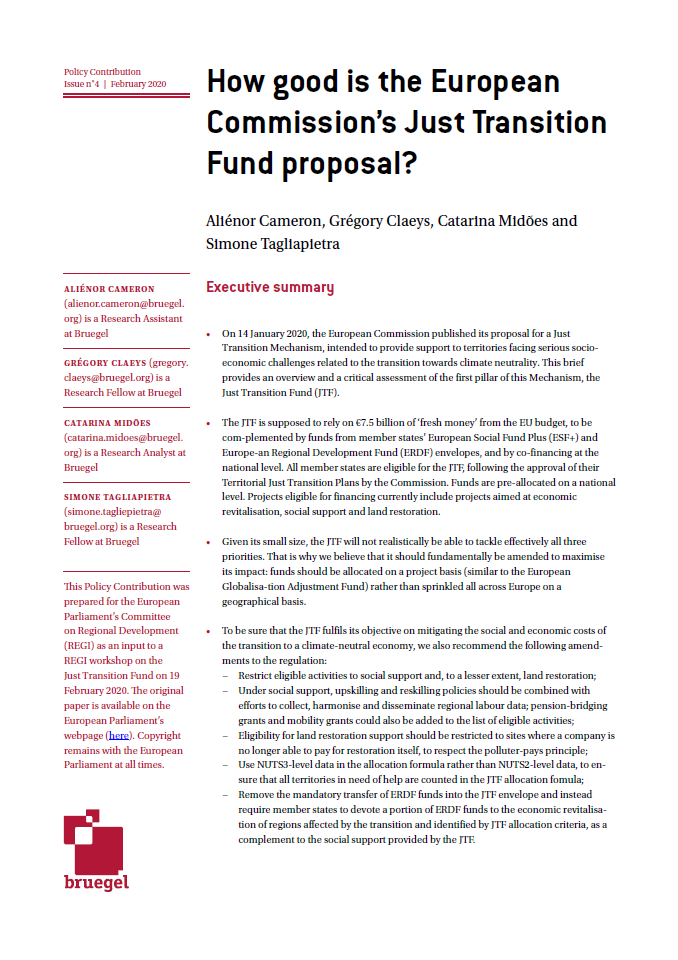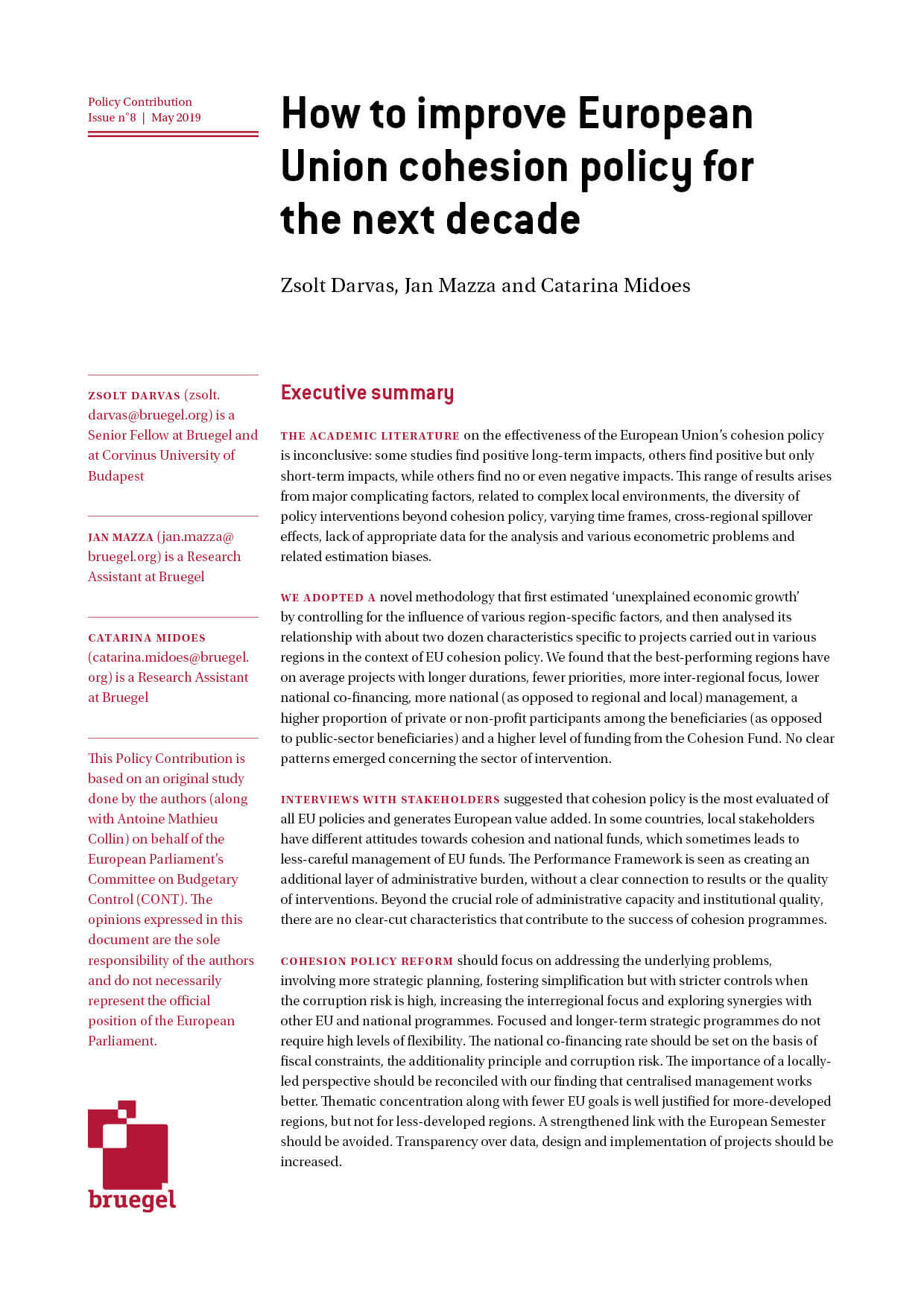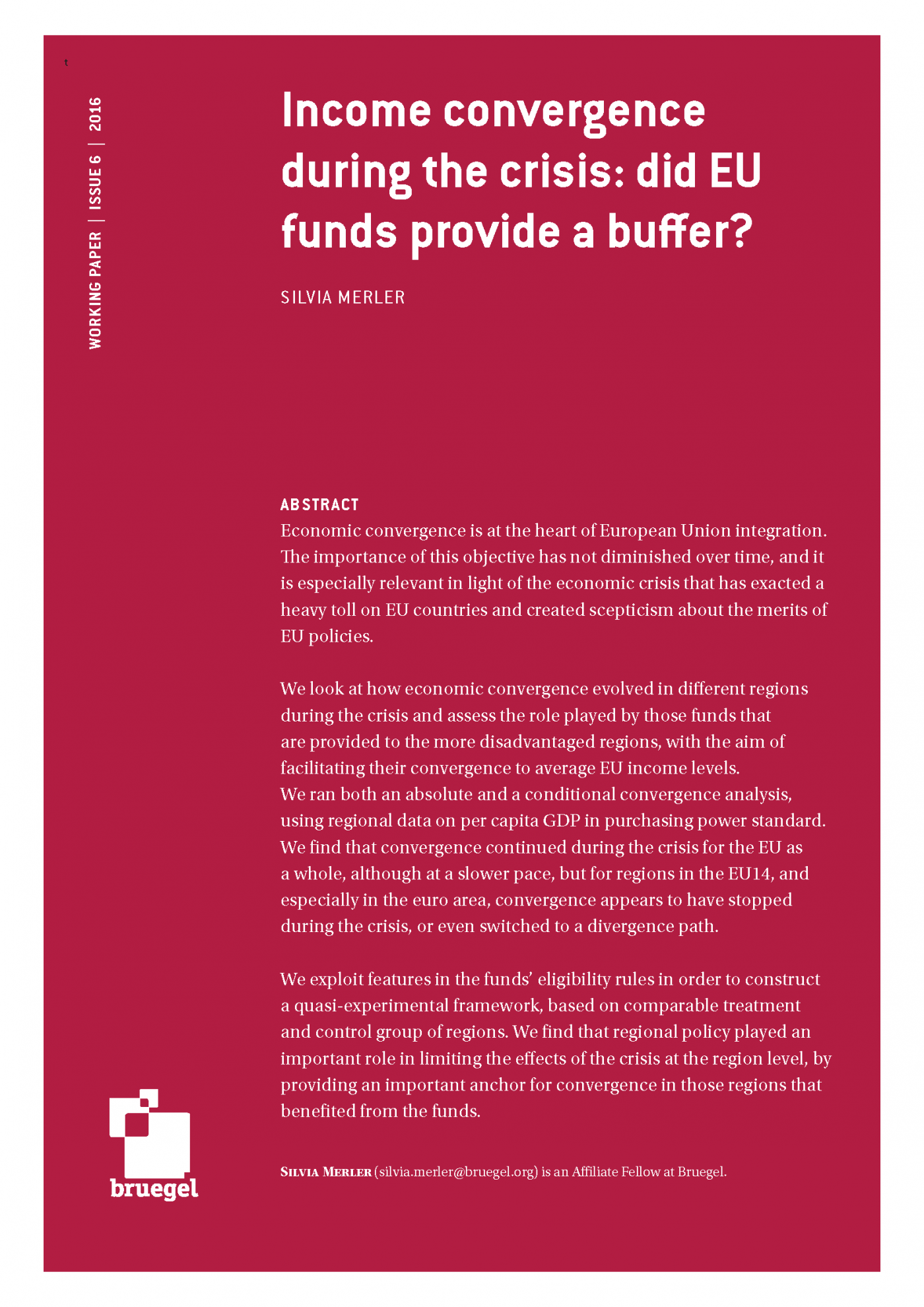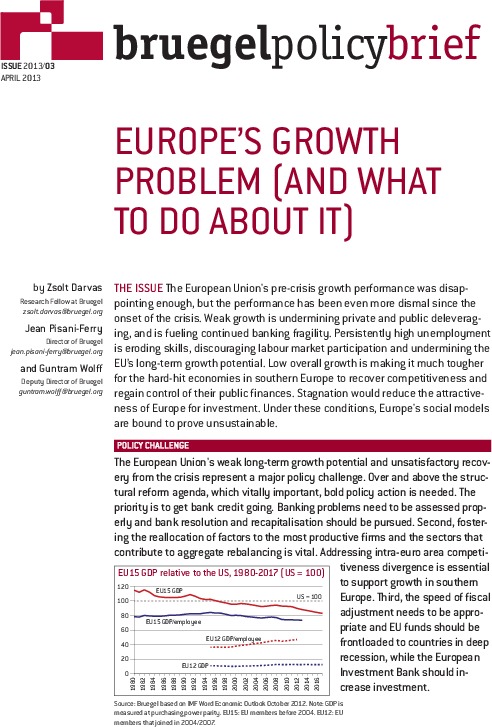Effectiveness of cohesion policy: learning from the project characteristics that produce the best results
This study by Zsolt Darvas, Antoine Mathieu Collin, Jan Mazza, and Catarina Midões analyses the characteristics of cohesion policy projects that can contribute to successful outcomes. Their analysis is based on a literature survey, an econometric analysis and interviews with stakeholders. About two dozen project characteristics are considered, and their association with economic growth is studied using a novel methodology. Based on the findings, the study concludes with recommendations for cohesion policy reform.
By: Bruegel, Zsolt Darvas, Antoine Mathieu Collin, Jan Mazza and Catarina Midões
Topic: Macroeconomic policy
Date: June 11, 2019













